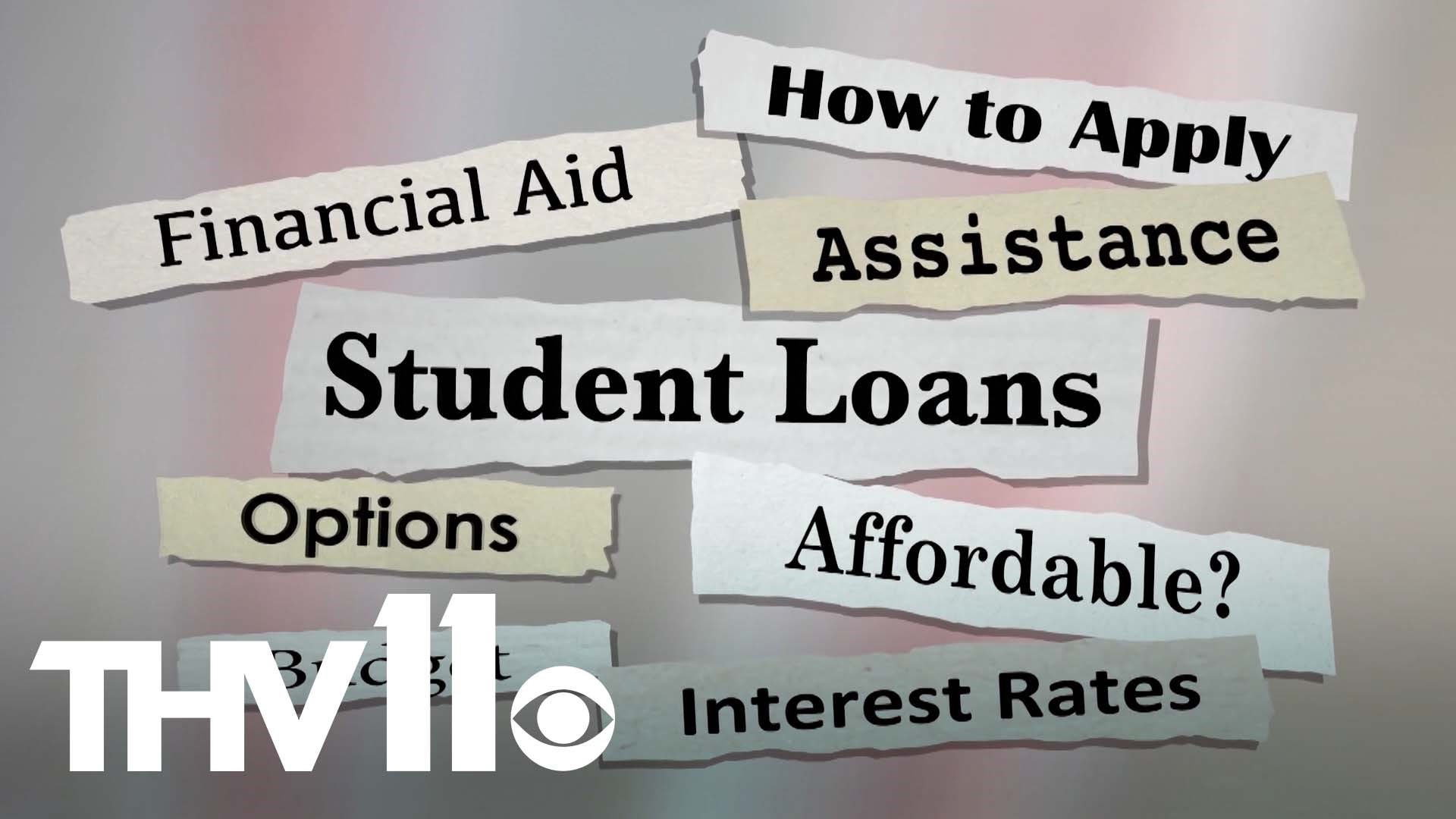LITTLE ROCK, Ark. — Meet Emily Towe. She's an attorney in Little Rock, and much like 43-million other Americans, she has student loans.
“Currently I think I’m about $200,000 total for student loans," Towe said.
That's a daunting number for anyone, and the Bowen School of Law graduate is choosing not to pay right now during the federal student loan freeze.
“You’re studying for the bar exam and you’re trying to catch back up on everything else," Towe said. "It’s good things have been pushed out a little bit just so I can get my feet back and get settled before I start paying those back.”
Last month President Biden extended the freeze on federal student loan payments to August 31st. Previously the deadline was May 1st.
The extension also brought up the question at a White House press conference about the president using executive authority to possibly cancel up to $50,000.
“I am not considering taking 50,000 in debt reduction. However, I am in the process of taking a hard look at if there will be additional debt forgiveness. I’ll have an answer on that in the next couple of weeks,” Biden said.
Federal student loans have remained on hold since March 2020 due to the pandemic.
The president's extension has even caught the attention of some Arkansas politicians. In response to President Biden’s extension of the payment freeze, Arkansas Senator John Boozman released the following statement:
“Extending the student loan repayment moratorium yet again is the latest example of President Biden talking out of both sides of his mouth when it comes to the pandemic. Continuing this pause is a gift to his political base and an insult to taxpayers and the hardworking Americans who have fulfilled their obligations. The Biden administration should work in a bipartisan way to make student loan repayment a more simple and accountable process instead of this patchwork solution that could set the stage for a permanent and unnecessary loan forgiveness for high-income borrowers.”
According to the Federal Reserve, the average person has around $37,000 worth of federal student loan debt.
That's a large number, but UCA Assistant Professor of Insurance and Risk Management Stephen Yao said that’s not all.
“You know in the United States when people die. On average they have $25,000 in student loan debt,” Yao said.
The UCA professor understands the benefits of waiting to pay, however he said people who can afford those payments now should think about the long-term impacts.
“That’s the first lesson that I teach my students. If you have any debts I would pay as soon as possible.”
As far as making the call between paying sooner or later, Yao is encouraging self-discipline and discretion.
“They are so used to using someone else’s money for free. That’s wrong, you’ll hurt people in the long run. They’ll have no money to save for their long-term project or retirement," he said.
Professor Yao also suggests repaying under an income-driven repayment plan, which sets your monthly payment at an amount that is intended to be affordable based on your income and family size.
This plan is exactly what Emily will do when her payments are due at the end of August.
“Yeah, it’s just another thing that’s going to come out of the bank account. You get an alert that says make sure you’ve got money in the bank on a certain day. You just must think that way. You borrow it and you’re expected to pay it back.”
Professor Yao’s best advice for future borrowers is to fully educate yourself before taking out a federal loan.
“There is a lack of financial literacy. High school students they never share the financial literacy and take that financial responsibility” Yao said.

